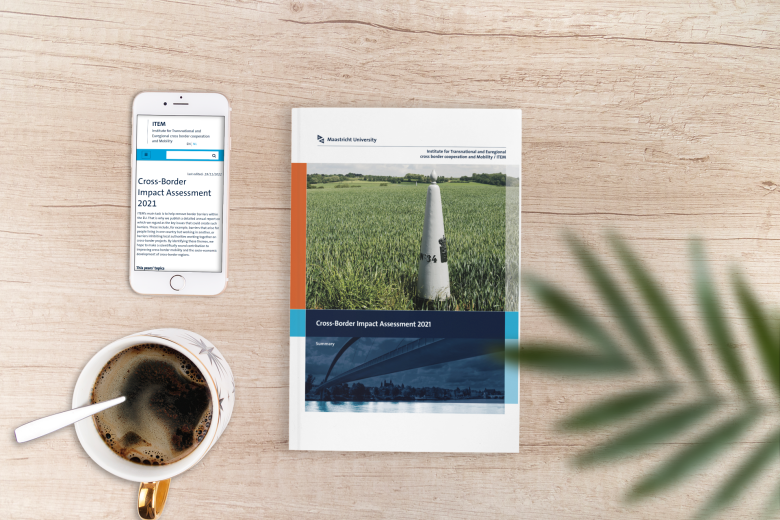Survey - ITEM Cross-Border Impact Assessment 2023
Each year ITEM's stakeholders are given the opportunity to make dossier suggestions based on their experiences through a survey. The survey allows you to feed ITEM with issues regarding legislation, policy and enforcement on a European, national and regional level.
Grab the opportunity to share your experiences with ITEM! Dossier suggestions can be made up to and including 7 March 2023.

With its annual Cross-Border Impact Assessment, the ITEM Expertise Centre provides more insight into European and national law and policy initiatives and their effects on border regions. The assessment is intended as a valuable tool for policy makers at regional, national and European level when taking decisions on legislation and regulations with (additional) effects on border regions. More information about the ITEM Cross-Border Impact Assessment as well as the results of the reports from 2016 through 2022 can be found here.
The stakeholder consultation is the important first step of the annual ITEM Cross-Border Impact Assessment. Based on the full list of dossier suggestions, ITEM will draw up a shortlist of dossiers that will be analysed by its researchers and experts.
The Institute for Transnational and Euregional cross border cooperation and Mobility / ITEM conducts research into current transnational and cross-border issues. One of its core activities is to conduct research into the effects of existing and future legislation, policy and enforcement on border regions through its annual ITEM Cross-Border Impact Assessment.
Also read
-
Designing solidarity
EU immigration and asylum law are plagued by disharmony and dysfunction. Lilian Tsourdi, assistant professor of International and European Law, is investigating how to improve the situation.

-
Survey - ITEM Cross-Border Impact Assessment 2022
The consultation round on the upcoming ITEM Cross-Border Impact Assessment 2022 is herewith launched! Grab the opportunity to share your experiences with ITEM! Dossier suggestions can be made up to and including 23 January 2022.

-
ITEM Cross-Border Impact Assessment 2021 published
Due to the Corona crisis, also many cross-border workers are forced to work in their home country. They have been asked not to cross the border to come to their office situated in the neighbouring country. At the moment, this is only possible because the Dutch, Belgian and German governments have...
